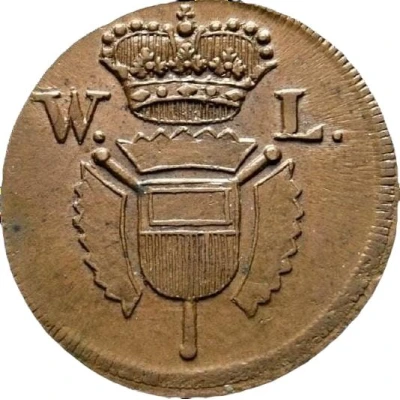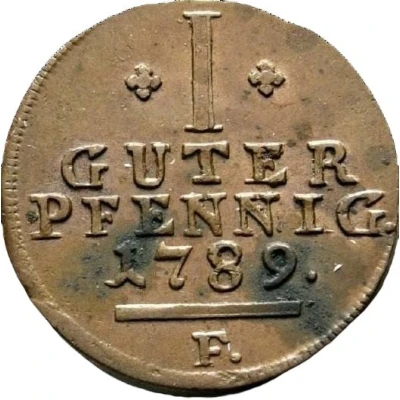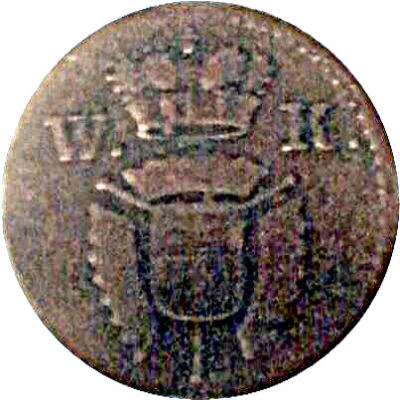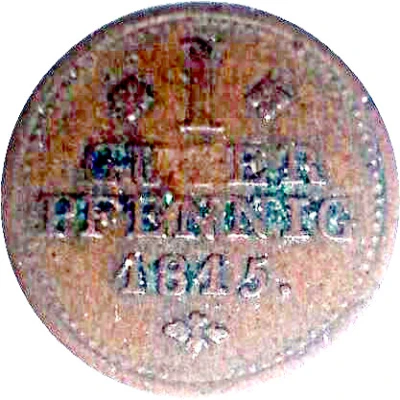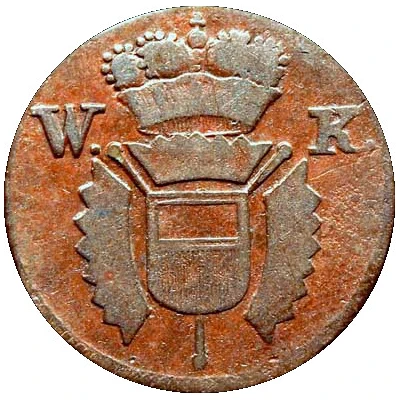
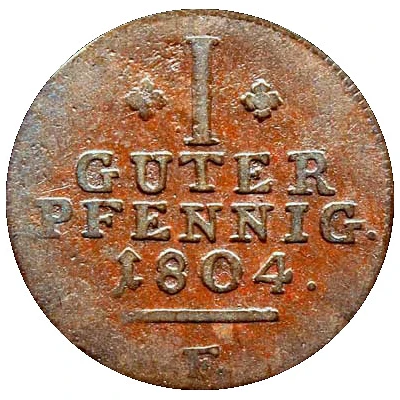

1 Pfennig - William I
| Copper | 2.3 g | 20 mm |
| Issuer | Electorate of Hesse (Province of Schaumburg-Hessen, Hesse-Cassel) |
|---|---|
| Prince elector | William I (1803-1807, 1813-1821) |
| Type | Standard circulation coin |
| Years | 1804-1814 |
| Value | 1 Pfennig (1⁄288) |
| Currency | Thaler (1803-1840) |
| Composition | Copper |
| Weight | 2.3 g |
| Diameter | 20 mm |
| Shape | Round |
| Orientation | Medal alignment ↑↑ |
| Demonetized | Yes |
| Updated | 2024-10-05 |
| Numista | N#40924 |
|---|---|
| Rarity index | 70% |
Reverse
Face value, as well as the date and the letter F in bottom.
Script: Latin
Lettering:
I
GUTER.
PFENNIG.
1804.
F
Interesting fact
One interesting fact about the 1 Pfennig coin from the Electorate of Hesse is that it was minted during a time of great political and economic change in Europe. The coin was issued during the reign of William I, who was the first king of Prussia and played a significant role in the Napoleonic Wars. The coin's mintage was a result of the currency reforms implemented during this period, which aimed to standardize currency across the various German states. This coin, made of copper and weighing 2.3 grams, was a significant departure from the previous currency system, which was based on the use of various local currencies. The introduction of this coin marked a shift towards a more standardized and centralized monetary system, which would have far-reaching impacts on the German economy and beyond.
